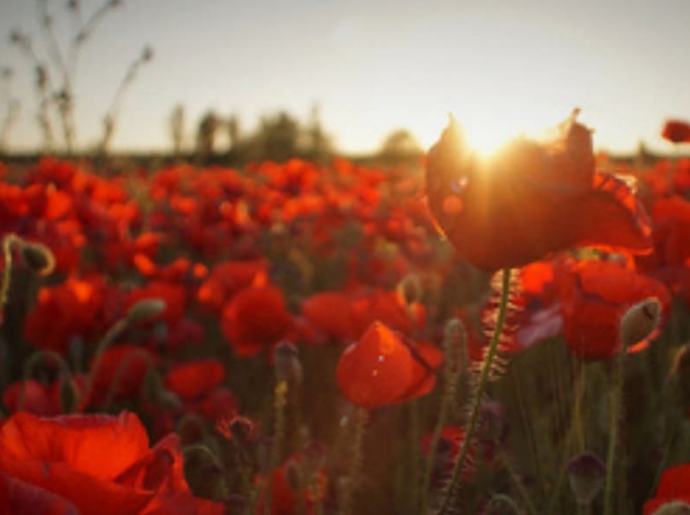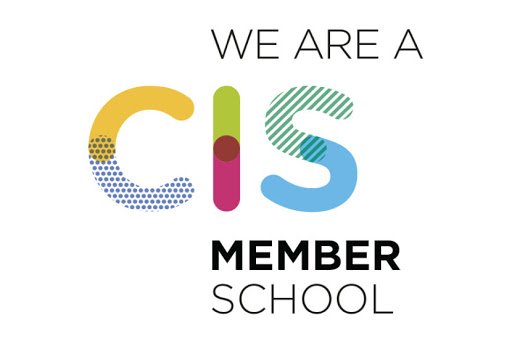TERM 2 REVIEW 2020-21
PRINCIPAL'S BLOG - RIVERSIDE REFLECTIONS
Last night Shrewsbury delivered something few have thought barely possible in recent months or years. A large-scale musical event, inside and outside. Garden Party Proms was a triumph and the Riverside magic returned for a night at the end of another long term.
As I wallowed a little in my own isolation, frustrated not to witness the musical excellence on show, a wicker hamper arrived from the event supremo Ms Randall. The beautifully curated contents not only filled the belly but also the soul.
Feeling disconnected from others has been the key challenge of the last two years. The inevitable isolations, quarantines and periods of stasis have taken their toll on us all, and it takes real effort to avoid isolation in a much more profound sense than the perfunctory 7 or 10 days issued as a close contact with COVID. Humans need to engage with other humans
Ms Randall took the effort to engage. She engaged a community in an event that seemed bonkers on many levels. Mr Place, who fought his own battle with COVID through this period, made it work. Students coming together with the awesome skills of our teachers such as Ms Calvert, Mr Archibald and Miss Mary to connect and make music worth paying for.
The payment is gladly made by all, a treat to witness a spectacle such as the Shrewsbury proms. It’s been a while! November 2019 saw the last ‘true proms’. November 2020 came too quickly for us after the first lockdown, and then as we pivoted to American Promenade it was cruelly cancelled just days before it was due. When we settled on April the 7th for this event back in August 2021, I don’t think many of us really believed it would happen. In fact, even a few weeks ago we weren’t sure about it all!
Thank goodness we persisted, and mainly on behalf of the students. Many schools talk about being ‘student centred’ but few actually deliver. This concert needed to happen, it was right to defy the odds. Our musicians have been resiliently and diligently honing their skills and they needed their moment just as our athletes are now expressing themselves so freely on our emerald surfaces and air conditioned spaces.
These moments matter, because they live long and create life chances. A Year 7 parent wrote to me that her son ‘is on a total high after tonight and can’t wait to play with the orchestra again soon’. Amen. This is what an outstanding co-curriculum provides, the opportunities to make memories that we learn from and we hold dear into later life.
Not many of our musicians will end up playing at Carnegie Hall (though some already have!) but this matters not. Through excellent design and wilful stubbornness, the students have been exposed to the work required for excellence, and to the adrenaline needed for top class performance. They have and will learn from it, but I hope they enjoy the ‘total high’ that these kinds of events present and stay addicted for life.

SPACE TO THINK
31 Mar 2022
In the middle of the maelstrom that is running a school through a pandemic, I found an oasis of calm the other day. Covering Year 8 Mathematics was an unexpected opportunity to pause and reflect on all that is happening around us. With their brilliant teacher delivering superbly through Google Meets, the students were all beautifully engaged in their favourite subject. With ‘crowd control’ my superfluous role, just for a moment, I just sat in silence.
These moments are precious, and they come all too rarely in this role and especially in recent months. However, their importance can be profound. Pre-COVID, finding time to reflect was more possible, and almost a structured part of being an international Head.
Flying may not please the environmentalists but was an ‘essential’ part of what we did and offered peace and quiet in abundance. Staring at towering cloud formations or burying myself in a good book offered the opportunity to find new places and perspectives. Space. Away from the day job, but thinking deeply about what the day job requires and how things can be improved. Space to think.
In 2017, our Head of Sixth Form first used the phrase Space to Think at Shrewsbury. It encouraged a line of investigation about how we build an environment that fosters creativity, through offering physical spaces for collaboration, solitude and exploration. Curiosity may have killed the cat, but it is the lifeblood of top level academic success.
The years since, and the passage of time, was well spent. Thinking, collaborating and arguing with architects about how to deliver an abstract concept into a real building. They listened and between meetings found the space to think for themselves. The result is a world class Sixth Form Centre within an incredible innovation facility, with a variety of spaces and options. An environment to breathe, to rest, to refresh and reinvigorate. An environment to work together or alone, to challenge and to succeed.
The next challenge is to design the wider environment to scaffold those opportunities to be creative. Every school has this challenge. How does the timetable offer space for students to be curious? How does a co-curricular programme offer a breadth of opportunities for all to explore their interests? How do you build pathways for academic stretch and curiosity? Not easy and in itself a series of challenges that require creativity and courage.
What is clear though is that this is as necessary now as it was when long standing boarding schools such as Shrewsbury were evolving their programmes over decades and centuries. The pandemic has been a curious mix of inaction and intense work. We have had some chances for reflection, but uncertainty often prevails and the thinking can become ‘what if’ rather than ‘we should’.
As we move forward with or without COVID, the generation in schools now need us more than ever to find the time and space to deliver an education that serves them. They will need to be creative and collaborative to resolve the challenges of the world we leave them, for there are many such challenges now and there will be plenty more to come.

PASSING THE BATON
17 Mar 2022
A leader’s lasting value is measured by succession
I am a big fan of Succession. The HBO TV series is massively a current hit across streaming services. A collection of truly awful individuals playing out the drama of the potential succession to lead the family media firm loosely based on real media monoliths.
It is strangely enjoyable in that the characters are all so genuinely unpleasant that it allows dark humour to surface regularly, the acting is superb, and the writing sharp and current. It is also an object lesson in how not to deliver succession in the corporate world, as the ‘big beast’ at the top of the organisation holds on to power despite the various attacks of his avaricious children.
It couldn’t be further from our experience at Shrewsbury.
Last week Sir David Lees gave us all an object lesson in how succession should be delivered, in a kind and generous way with the needs of the school and the wider Shrewsbury community very much at heart. His legacy is immense and his legacy is the succession he leaves behind.
Sir David’s career in the UK is an illustrious one. Turning GKN, an automotive business, into a profitable venture and then becoming Chair at huge textile firm Courtaulds in 1996. His appointment to the Chair of the Court of the Bank of England was richly deserved and signaled significant reform in the governance structure at the 350 year old institution.
This section of an article written about Sir David by the Evening Standard in 2014 speaks of Sir David’s approach. “The chairman of the Court is not first fiddle, he’s second fiddle,” says Lees, pouring the tea in his simple office on the Bank’s ground floor.
The simple office, on the ground floor, a cup of tea and playing ‘second fiddle’ are hallmarks of this extraordinary leader who is both humble and driven.
I can recall vividly the first time I met Sir David. As I walked into the interview room at Odgers Berndtson in London, the June sun lit up an extraordinary view of St Paul’s Cathedral. Momentarily distracted by the incredible view I was quickly brought to order by the ‘sharpest man in the room’ as I have often described him. His questions were probing and precise, his responses warm and curious.
Since 2017, Sir David has nudged and encouraged long range thinking. Succession planning at senior and middle leadership levels. Rob Millar’s ascension to Principal an excellent example of his influence as are internal appointments made to the senior team. Now he has produced the ultimate example of succession planning. He quietly supported the appointment of Sarah Canning-Jones as Vice Chair not long ago, in the knowledge that not only is she an outstanding governor but also has the capacity to be a wonderful Chair.
The quote at the top of this article is from a divisive figure in evangelical churches in the US, but he was right in what he said. Sir David’s legacy is clear in what he has built.
Former Chair of Xerox, Anne M Mulcahy said ‘one of the things we often miss in succession planning is that it should be gradual and thoughtful, with lots of sharing of information and knowledge and perspective, so that it's almost a non-event when it happens’.
Sarah Canning-Jones being appointed Chair of the Advisory Board of Governors is not a non-event! It is a hugely important moment for the school, but it is also a logical and seamless step forward by an organisation built to last by an exceptional group of people. Floreat Salopia!

TRUE REFLECTION
4 Mar 2022
Integrity is doing the right thing, even when no one is watching
These extraordinary times have challenged many things we held sacred in schools over decades. Schools have changed their method of delivery, the places they operate in, the style of operation, leadership structures, staffing and operations. It is difficult to consider something that hasn’t changed since the end of 2019.
How about our integrity? It is something all good schools fight for. Are we, as CS Lewis suggested, doing the right things all the time without an audience? Are we doing what we say we do? Have we stayed true to our values?
Shrewsbury’s values are neatly summarised by our motto, ‘if the heart is right, all will be well’. We work hard to ensure that our people are considered and nurtured. The process comes first, the outcome later. This has been a core tenet of the last few years, and has remained so through the pandemic.
We try to be authentic about who we are. Our human frailty sometimes shows through, we make mistakes and in doing so we learn more. It is easy to put up artifice and pretend everything is perfect, much harder to actually improve provision and develop excellence that is sustainable - but we try, because we know it benefits the students more.
As we now have all students back to school, they can see that much has changed but also that much remains the same. We have extraordinary new facilities, and new sports pitches. The sports pitches are emerald green, the Canterbury Field possibly the best playing field in Bangkok. Laid next to a turbulent river and on top of an impossibly high water table, it shouldn't work - maybe we should just lay an artificial surface? We have never considered it, we wanted a real grass surface - get the drainage right and build from the bottom with diligence and skill.
Concentrate on the process and the rewards will come.
Through the course of this week we are holding a series of open days. The days are designed for prospective parents to see what our current parents already know. We produce strong academic outcomes, have breadth and depth in the co-curriculum, a strong sporting pedigree, marvellous music and incredible art (currently on show at the Four Seasons Hotel next door).
People know us for the exceptional academic results and university placements and some will tell you that this is all we can do. However, a Shrewsbury education is much more than academic results. We do those brilliantly of course, but we also build the confidence of students, we nurture their wellbeing, we develop self-esteem and stretch and challenge students at age appropriate stages to build the resilience they will need to flourish not only in the world's best universities but also beyond.
These are authentic claims, not ambitious ones. They are based on what actually happens at Riverside. They are based on our track record in Bangkok. They are based on integrity not artifice.
If you are in any doubt yourself, come and see.

LEST WE FORGET: REMEMBRANCE DAY 2021
12 Nov 2021
In Memory of Leslie Flavell
We come together to remember the fallen. Those who gave their lives so that we might live in freedom and democracy. In remembrance of the fallen, we should always treasure what they fought for - our freedoms, privileges, democratic processes, and peace.
Remembrance is often viewed as a chance to reflect on the events of four grim years over one hundred years ago. 1914-1918, the Great War, the war to end all wars. Millions of men perished in the mud of northern Europe.
But remembrance is about more than that. Remembrance is about the fallen - in all wars across the world. Remembrance is about the forgotten wars. The ones that don’t appear in our textbooks or on TV, the battles fought briefly or sporadically over what seems like interminable passages of time.
Remembrance is about wars that were lost, wars that were less than glorious, and wars opposed by many. So we remember the fallen from wars in Vietnam, Korea, Aden, Angola, Somalia, the Balkans, countless conflicts over Afghanistan. One hundred years ago this year, Russia invaded Georgia, and the Irish War of Independence raged, eventually turning into the euphemistically named ‘troubles’ of the 1970s and 1980s
These forgotten wars need to be remembered. Each one in its own right is a lesson for history - a lesson about the greed of expansionism and nationalism. All are a lesson in the futile waste of human life, and a lesson in service to your country
One such man who lived to tell the tale of these forgotten wars and his service to his country is Mr Flavell’s father, Sergeant Leslie Flavell, who sadly died last week at the grand old age of 95.
As a merchant seaman at 16, he witnessed conflicts in Southeast Asia and mainly in the Pacific as protection for the US pacific fleet against submarines. He joined the tank regiment in 1946 and went to Korea at the beginning of the Korean War in 1950. He volunteered for a second tour in Korea and went back home to the UK when the war ended in 1953.
In 1955 he served in Egypt before going home due to the Suez Crisis in 1956. He finally ended up in Nepal in 1963, with the Army pay Corps delivering pension money to the Gurkhas in the Himalayas, who fought alongside the British in the 2nd World War.
His life and excellent service remind us of the need sometimes to place the ego, our pride, and our privilege to one side and fight for what we believe in as a community.
We fight for the right to an education. We stand shoulder to shoulder for each other to stay healthy in these extraordinary times, and within all this, we remember the forgotten soldiers in forgotten wars.










